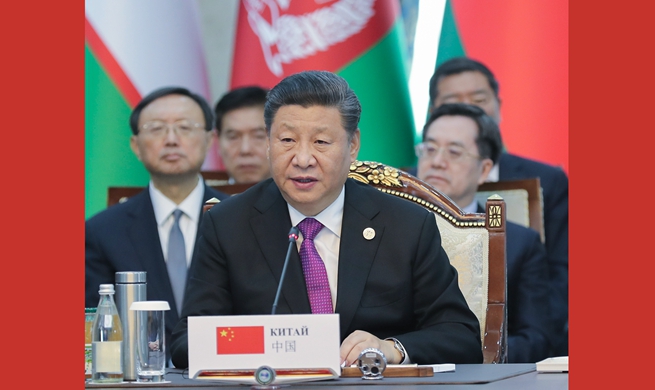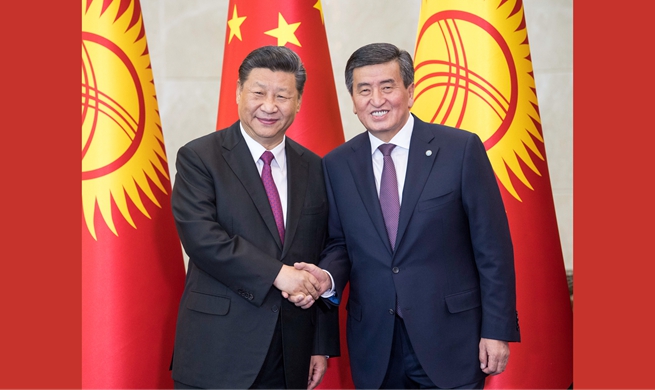by Eric J. Lyman
ROME, June 14 (Xinhua) -- Italy inched closer towards becoming the first European Union member state to face economic sanctions in response to budget issues, after the European finance commissioner formally called on Italy to explain its high debt levels.
Commissioner Pierre Moscovici this week said that the European Commission "stands ready to take into account any new elements Italy may put forward, but we cannot waste time."
Italy's debt levels last year reached the equivalent of nearly 133-percent of the country's gross domestic product (GDP). That is the second highest level in the 28-nation European Union only after Greece and well above the 60-percent limit for members of the euro zone.
With a budget deficit this year forecast to be at least 2.8 percent of the country's GDP and the economy expected to grow no more than 0.2 percent, debt is forecast to rise to 135 percent of GDP by the end of this year.
In his remarks, Moscovici said that while the commission was willing to be flexible on fiscal rules where there is a justification, that "nobody should be in doubts that we will apply the rules if criteria are not fulfilled."
Among the rules could be fines of up to 3.5 billion euros (3.9 billion U.S. dollars). Analysts told Xinhua that if that happens, Italy will become the first European Union member state to be fined for debt levels.
"Other countries have faced infraction procedures in the past, including Italy, and that is where things stand for Italy at this point," Giampaolo Galli, an economist and vice-director of the Italian Observatory of Public Accounts, a watchdog group, said in an interview. "But if the process moves forward, Italy will be entering new territory."
Galli said the financial sanctions remained a distant prospect, noting that Moscovici and the other commissioners would take Italy's explanations into account and will probably want to see the country's 2020 budget plans, which will be finalized late in the year.
"Italy will have to make some serious missteps for a fine to be charged in 2019," Galli said.
But even if a fine may be months away or even if it never comes, the ongoing procedure still creates problems for Italy, according to Francesco Daveri, an economist and director of the business administration master's program at Bocconi University in Milan.
Daveri said that investors are already nervous about Italy's medium- and long-term economic prospects and that having the European Commissioning pointing out Italy's debt problems and threatening fines sparks more investor jitters.
"Investors look at this as a potential early warning of deeper troubles," Daveri told Xinhua. "It seems symbolic at this point, but it can have measurable consequences."
Among the potential consequences is driving up interest rates on Italian government debt, meaning the Italian government will have to pay more to borrow money, further adding to the country's economic woes.













